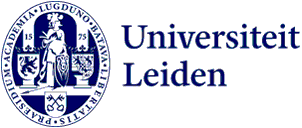
Vidi grant for The Future of Dying
Amidst the growing availability of advanced life-lengthening medical interventions, both healthcare professionals and patients are recognizing that less medical intervention can sometimes lead to a better experience of the last phase of life. The Future of Dying: End-of-Life Care in a Time of De-medicalized Death explores how patients, their relatives, and healthcare providers make decisions about end-of-life care when such treatments are readily available. With support from a Vidi grant medical anthropologist Annemarie Samuels will investigate through ethnographic research the new dilemmas around what constitutes "good" care at the end of life in the Netherlands.
Together with a PhD candidate and a postdoctoral researcher, Annemarie Samuels will explore how patients, their relatives, and healthcare professionals draw on ethical and cultural frameworks in these difficult end-of-life decisions. These decisions may become more complicated when patients, families, and healthcare providers have differing perspectives on what the best care would be. Rather than focusing on a single clinical moment, this study looks at how end-of-life decisions unfold within the broader context of patients' and healthcare professionals' social lives and care networks, taking into account their diverse experiences and backgrounds.
A “good death”
The project starts from the insight that different people may have different ideas about what constitutes a "good death" and what makes a decision "good" in terms of medical treatment. Such differences become particularly relevant in the societal context of an aging population, increasing medical options, and social inequality in access to care.
Patients, professionals, and public discourse
Using qualitative research methods, the project brings together three scales of decision-making at the end of life. First, it involves an ethnographic study of patients and their close caregivers, following them as they navigate decisions about life-extending treatments when curative options are no longer available. Second, it examines the experiences of healthcare professionals, exploring the dilemmas they face and how they approach these complex decisions. Third, the project looks at public discourses, analyzing societal norms and values around end-of-life medical interventions as seen in media, policy reports, and public discussions.
Long-term ethnographic research
By combining these perspectives—patients, professionals, and public discourse— Samuels aims to better understand how decisions are made and how they are shaped by differing values, power relations and social inequalities. Both patients and healthcare professionals are studied through long-term participant observation and interviews to capture the full scope of these decision-making processes and their implications for care trajectories and professional practice.
